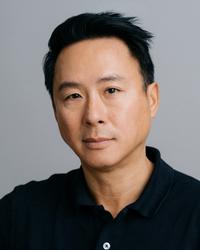What We Saw Early: Celebrating Chief’s Ascension to Unicorn Status
Before the community for women executives was attracting thousands of members or speakers like Indra Nooyi and Ursula Burns, we knew Primary had to be a part of it.

“Can a mission-oriented business be a venture-scale business?”
It was a question we heard frequently back in 2018 when we led Chief’s seed round. Today, Chief seals its status as not just the most powerful network for women executives, but one of the fastest launch-to-billion-dollar transformations for a solely women-founded, venture-backed U.S. tech company.
No, Chief didn’t fit neatly into the typical tech uniform profile, but it’s time to redefine those profiles. The investors who had concerns that this was “just” a “lifestyle” business didn’t understand the unique needs of women at the near-top of the corporate ladder or see the potential in building something better for them. But Chief’s rapid growth and enthusiastic membership base have proved the doubters wrong.
Today we celebrate the announcement of Chief’s $100 million round at an over $1 billion valuation, led by Alphabet’s growth investment arm, CapitalG. Cofounders Carolyn Childers and Lindsay Kaplan are far more than venture scale; they’re changing the face of leadership.
Seeing a great founder’s ascension
Chief is officially three years old, but our history goes back eight.
I met Carolyn when she was a star GM at Quidsi (before Amazon acquired it); she didn’t come from the world of ecommerce—she had worked in investment banking at Deutsche Bank and went to Harvard Business School—but quickly went on to lead a number of big initiatives for Quidsi.
After the Amazon acquisition, I asked Carolyn to advise our support for Coupang, an investment which is now the largest ecommerce company In South Korea. We worked together for 18 months on Coupang, and after she was done, I knew I wanted to work with her again.
She was such a strong operator—strategic but also very tactical in the best way. You never had to worry that anything important would fall through the cracks. She was super determined and competitive, and people loved working with her. Carolyn and I stayed in touch for general catch ups but also to talk about different start up ideas. Fortunately, in one of those catch up sessions we started talking about the idea for Chief.
Knowing the need from seeing the gap
Carolyn had climbed the ranks in the startup world, but she was usually one of just a few women executives—or the only woman executive. As such, she realized that women often lacked the network and relationships that make such a difference for reaching and thriving in the very top jobs.
Men often leaned on their networks in their path to success, and this was especially true for those men that were members of Young Presidents Organization (“YPO”) and Vistage, decades-old private networks offering CEOs a community to help navigate “the loneliest job in the world.” These networks were extremely successful, attracting tens of thousands of members.
Carolyn knew the top was even lonelier for women. There is a 4:1 male to female ratio at the executive level in the U.S., and Carolyn believed that there was an opportunity to create a network of women executives supporting each other and growing as leaders. We believed in Carolyn’s vision, and off of just some conversations and knowing we wanted to work with her again, we led the pre-seed and later the seed round.
Seeking early believers; finding few
When we raised the seed round and tried to build the syndicate, we were surprised by the volume of doubts and concerns about the need for a product for executive women. When we explained how YPO and Vistage were finding huge success, investors then said, “So it is a niche version of YPO or Vistage.” Bad comparison. The U.S. CEO market is only about 500,000 people; there are about 6 million women executives in the country.
But that was not the only friction point. Investors would then ask how growth would actually make a better experience. What they didn’t get is that once Chief became the de facto network for women executives, this moat would be a superpower. Network effects added value for members, especially with services like peer coaching groups, a digital community platform, and world-class learning and development programming (Michelle Obama—maybe you’ve heard of her?).
Seeing the idea through—at serious speed
In just three years since we launched, Chief built a network of over 12,000 active members. And more importantly, they have built a network and a brand that is truly making a difference building relationships with and between members.
There was no shortage of interest from investors in Chief in this last round and no lack of confidence that Chief could end up being a massive success—so much so that one of the largest companies in the world, Alphabet, has led this $100 million Series B with its growth fund CapitalG. CapitalG has seen Chief’s incredible growth and believes we are still in the early days of what will be a truly special company. Chief has ambitions to be a global player that will level the playing field in the corporate world and in doing so will also expand what it means to be a venture-scale business.
